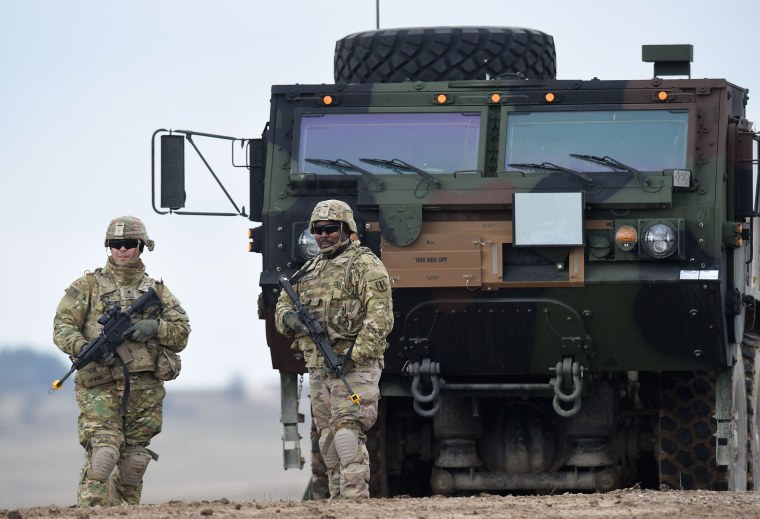When Defense Secretary Mark Esper announced plans yesterday to withdraw almost 12,000 American troops permanently stationed in Germany, the Pentagon chief insisted to reporters that the decision was unrelated to German defense spending and NATO payment targets.
At nearly the same time, about four miles north, Donald Trump told reporters at the White House:
"Germany is delinquent. They haven’t paid their fees. They haven’t paid their NATO fees."
The president, indifferent to contradicting his own Pentagon chief, soon after peddled the same line on Twitter:
"...Germany is very delinquent in their 2% fee to NATO. We are therefore moving some troops out of Germany!"
At this point, we could note the fact that there's no such thing as a NATO "fee," which is a detail Trump really ought to understand by now. We could also explain that Germany is not, in reality, "delinquent." We could also note how embarrassing it ought to be when a president and his own Defense secretary explain the same decision in contradictory ways at roughly the same time. We could emphasize, as Susan Glasser did, that Trump is undermining his own ostensible point by moving U.S. troops to other European countries that are also not spending 2% of their respective economies on defense.
While we're at it, we could also note that the president's decision has been condemned by lawmakers in both parties, some in conservative media, and retired military leaders -- including Mark Hertling, the former commanding general of U.S. Army forces in Europe, who described himself as "sickened," both by the decision and the official explanation.
But as important as all of these angles are, I'm stuck on an entirely different question: why did Trump do this? We know the rationale peddled by the administration isn't true, so what is true?
It's possible that the president's feelings were hurt when German Chancellor Angela Merkel politely declined his invitation to a G-7 gathering at Camp David. It's also possible that Trump expects to lose his re-election bid, and he's trying to lock in lasting foreign-policy changes, effectively salting the earth behind him.
But let's not brush past the fact that the American president appears to be handing an unnecessary gift to Russia's Vladimir Putin. Indeed, the Kremlin was only too pleased to celebrate the White House's decision in an official statement this morning.
Esper said yesterday that that the move will, among other things, "deter Russia." And yet, no one seems happier about Trump's decision than Moscow.

